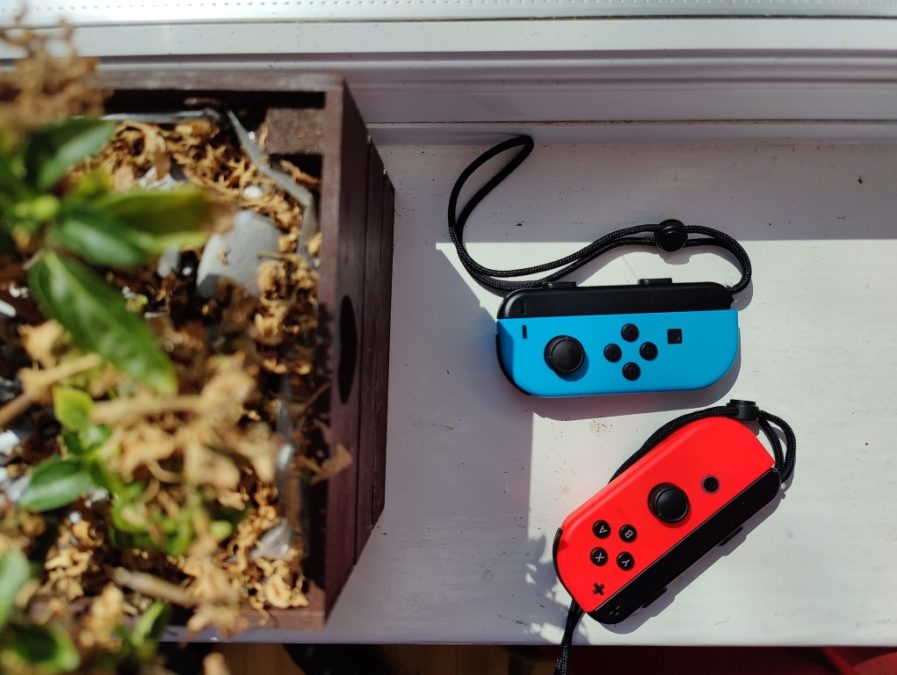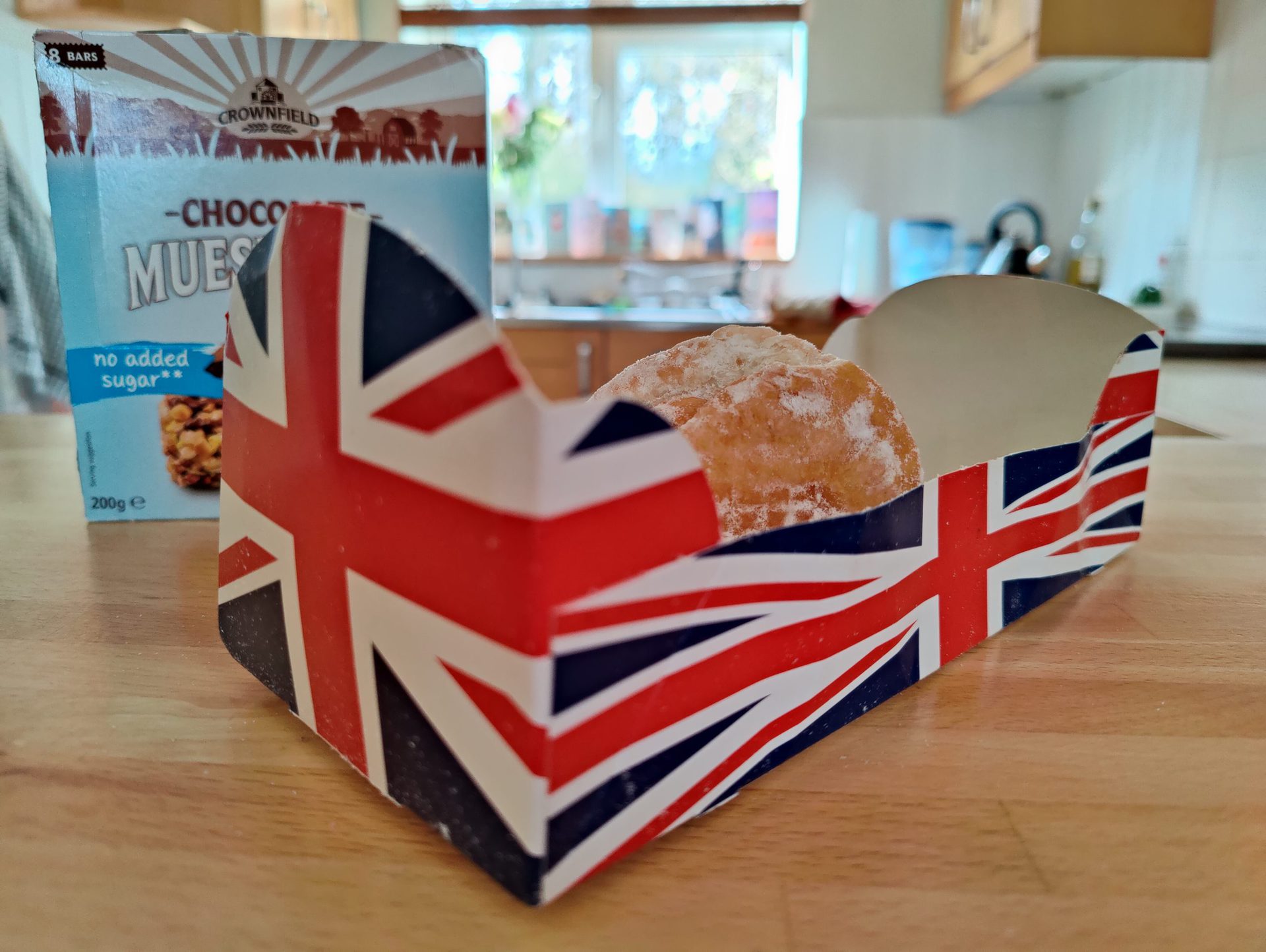OnePlus has made some particularly bold camera claims this year. With that in mind, we’ve been spending quite a bit of time with the OnePlus 9 Pro to put the camera through its paces. So far, we’ve had mixed thoughts on the handset’s photography package. I think it’s a little better in some regards than Apple’s iPhone 12 Pro Max, but not quite as good as the Samsung Galaxy S21 Ultra. Eric also thinks it’s better than the much more expensive Xiaomi Mi 11 Ultra. Although we both agree, it’s not without its caveats. Check all of our shootouts so far via the links below.
Of course, there’s a big name in the camera game that we haven’t compared the phone to: Google’s Pixel 5. Priced at just $699, it’s the affordable camera phone to beat. You’d assume that the more expensive OnePlus 9 Pro is the better buy for the camera enthusiast, but let’s find out if that’s actually true in this OnePlus 9 Pro vs Google Pixel 5 camera shootout.
Want a closer look at all of the images in this comparison? You can find the full-res image samples here.
See more OnePlus 9 Pro camera shootouts:
- Camera shootout: OnePlus 9 Pro vs Xiaomi Mi 11 Ultra
- Camera shootout: OnePlus 9 Pro vs Samsung Galaxy S21 Ultra
- Camera shootout: OnePlus 9 Pro vs Apple iPhone 12 Pro Max
OnePlus 9 Pro vs Google Pixel 5 camera specs
| Google Pixel 5 | OnePlus 9 Pro | |
|---|---|---|
| Main Camera | 12.2MP f/1.7 aperture 27mm focal length 1/2.55" sensor dual pixel PDAF, OIS |
48MP (12MP binned) f/1.8 aperture 23mm focal length 1/1.43" sensor dual pixel PDAF, OIS |
| Wide-angle | 16MP f/2.2 aperture |
50MP (12.5MP binned) f/2.2 aperture 14mm focal length 1/1.56" sensor |
| Telephoto zoom | 8MP f/2.4 aperture 77mm focal length PDAF, OIS 3.3x optical zoom |
|
| Extra Focusing | Laser AF system | |
| Selfie | 8 MP f/2.0 aperture 24mm focal length 1/4.0" sensor |
16 MP f/2.4 aperture 1/3.06" sensor |
Daylights, colors, and exposure
Before diving into the pictures, it’s worth noting that the OnePlus 9 Pro’s main camera has a slightly wider field of view than the Pixel 5. Main lenses with a shorter focal length are a growing trend in the mobile industry, and this has no bearing on picture quality. As we’ve come to expect from modern smartphone cameras, your typical daylight shots will mostly look pretty good. The Google Pixel 5 and OnePlus 9 Pro are no exception.
In fact, these handsets offer some of the best white balance you’ll find on any smartphone and colors are mostly very good too. OnePlus’ partnership with Hasselblad has definitely closed this particular gap. Neither phone regularly produces pictures that are too cool or too warm. Although OnePlus’ camera is known to wash out colors on occasion while the Pixel can oversaturate a tad.
Our take: OnePlus 9 Pro review | Google Pixel 5 review


A more consistent difference is that the Google Pixel 5 tends to underexpose more often than the OnePlus 9 Pro, particularly in brighter shooting environments. Shadows are consistently darker and this leaves images with an overly aggressive high-contrast look.
The Pixel also sometimes prefers more yellow grass and leaf hues, which is a blotch on an otherwise realistic presentation. When it comes to skies, both can struggle to capture the right blue tint, with OnePlus’ take often coming out far too purple.


Lens flare is also clearly an issue in the above set of pictures. While both phones are susceptible to some degree, the OnePlus 9 Pro is definitely the worse offender. And yes I cleaned the lenses multiple times when attempting to take these pictures. It really is an inescapable issue with the OnePlus’ main camera when shooting with the sun directly overhead.
Both phones also see small amounts of chromatic aberration lens distortion, although again it’s worse with the OnePlus. Cheap lenses take the sheen off both phones but it’s a much bigger problem for the OnePlus 9 Pro.
Detail
Much like color and exposure, there are no clear detail deficiencies with either the Google Pixel 5 or OnePlus 9 Pro when shooting with abundant lighting. Both suffer when the lights go down, but we’ll take a closer look at that later on.


With 12MP of resolution on show apiece (with the OnePlus 9 Pro pixel binning from 48MP), it’s down to light capture and processing to tell these two apart. Broadly speaking, you’ll struggle to notice much of a meaningful difference at full frame. That said, details from the OnePlus 9 Pro appear much sharper on closer inspection, which is a case of pros and cons.
![]()
In the brightly lit image above, it’s quite clear that OnePlus is too aggressive on the sharpening pass. Edges and branches appear harsh and there are jarring specular highlights on the bushes. Here, the Google Pixel 5 appears much cleaner and more true to life, with robust details and minimal signs of overprocessing.
![]()
However, the results are much closer in lower light and trickier HDR environments. Here, the Pixel 5 is slightly noisier and the darker details slightly smush together. This isn’t an issue with the OnePlus 9 Pro which, although still oversharp, holds up a little better in less ideal shooting environments. That said, the high level of sharpening still makes OnePlus’ details appear a little too grainy.
Photography terms explained: ISO, aperture, shutter speed, and more
Overall, I much prefer the Pixel 5’s softer approach to processing. However, the smaller sensor means that Google’s phone can’t always maximize the available level of detail.
HDR capabilities
Google helped pioneer modern smartphone HDR technologies and the company’s excellent software continues to allow the Pixel’s more dated hardware to punch above its weight. However, several phones have closed the gap and even exceeded the Pixel’s capabilities in recent years. The OnePlus 9 Pro joins these ranks.


Both phones manage decent exposure in tricky HDR environments. However, the images above clearly showcase less highlight clipping from the OnePlus 9 Pro. By clipping, we mean colors or detail that are masked by overly bright white highlights. OnePlus’ larger image sensor really helps out when it comes to dynamic range, while the Pixel 5’s hardware is really starting to show its age. Although it’s still better in HDR situations than other affordable phones on the market.
 Google Pixel 5 OnePlus 9 Pro
Google Pixel 5 OnePlus 9 Pro

It’s not just highlights and shadows that come out better with the OnePlus 9 Pro. In very tricky HDR scenarios, the phone is able to produce much more vivid and realistic colors. The scene above is far more washed out on the Pixel 5 compared to OnePlus’ result. Google HDR technology remains decent, especially for its price, but it’s certainly not the best in the business anymore.
Shooting in low light
With a larger image sensor, we’d expect the OnePlus 9 Pro to pull ahead in low light situations but that’s not strictly the case. Turning the lights down sees both phones suffer from more noise and detail smudging than in good lighting. However, the Pixel 5’s more extensive use of computational photography keeps details and colors looking relatively sharp in less ideal conditions. Although the phone has much longer capture and processing times as a result.


Interestingly, in the second picture above the Pixel 5 relies on Night Sight which takes several seconds to capture. The OnePlus 9 Pro manages to capture a similar image without a really long exposure and processing time, albeit with a slightly darker exposure. The latter is definitely the more useful phone for a quick snap in low light, although the result is blurrier than Google’s.



The tables turn when forcing night mode on both phones, where we see a clear advantage for the OnePlus 9 Pro. The Pixel 5 manages reasonable exposure and colors but clearly isn’t able to capture as much light and detail as the OnePlus 9 Pro’s larger sensor at night. Google’s phone also struggles a little more for focus in lower light.
Again we see the strengths and weaknesses of both handsets. Surprisingly, the Pixel 5 takes better pictures in so-so lighting. The OnePlus 9 Pro has the more powerful Night mode but uses it much more sparingly.
Related: 6 tips for improving smartphone low light photography
Zooming in on details
Without a dedicated telephoto lens, the assumption would be that the OnePlus 9 Pro’s hardware advantage will win out over the Google Pixel 5’s Super Res Zoom software approach. Once more, the cheaper handset punches above its weight.






In the images above, the OnePlus 9 Pro’s telephoto lens struggles for detail beyond 3.3x, with a noticeable color tint that’s pretty unsightly. The Pixel 5, although much harsher looking on close inspection as it’s relying entirely on software zoom, doesn’t appear far off the mark. It has no such color tint issue and extracts a surprisingly similar level of detail.
Even at 2x and 3x, the differences between the Google Pixel 5 and the OnePlus 9 Pro are reasonably small. This is because they’re both relying on software zoom from the main sensor. OnePlus ends up with a marginal detail advantage, but you have to really pixel peep to make it out.






We can virtually copy and paste the above analysis for this second set of zoom shots — at least for the 2x and 3x pictures. Both phones apply a harsh level of processing which doesn’t look particularly pleasing. Once again the level of detail capture is quite close, with a minor advantage for OnePlus’ handset. Although we can make out some strange artifacts in the tree branches.
The OnePlus 9 Pro manages to pull ahead of the Pixel 5 at 5x any beyond in these second images, at least in terms of detail. However, there’s noticeable chromatic aberration from a cheap lens implementation that spoils the look of these images. Overall neither of the smartphones offers a hugely compelling zoom setup for long-range, and the Google Pixel 5 certainly keeps up at shorter ranges under 5x.
Wide-angle lenses
The Pixel 5 offers a 0.6x step back from its already narrower main sensor versus a 0.5x step back with the OnePlus 9 Pro. I’ve resized the Pixel 5 image below to give you a rough idea of just how much extra picture the OnePlus 9 Pro captures from its wide-angle camera. It’s not a lot in the grand scheme of things but the lens fits a little more into its wide-angle scenes.
![]()
What’s perhaps more off-putting about the image above is the red tint noticeable on the road from the Pixel 5. That’s definitely wrong but this, fortunately, isn’t representative of other pictures I took with the handset’s wide-angle lens. That said, both handsets are a little off the mark when it comes to color matching between their main and wide-angle lenses.
Read more: The complete guide to ultra-wide camera phones
There are a few other differences to note with the wide-angle camera when it comes to detail capture and lens distortion.
![]()
Originally, I wasn’t much of a fan of the Pixel 5’s wide-angle lens, but subsequent updates appear to have vastly improved the level of image quality. Details appear to be a match for the OnePlus 9 Pro’s large wide-angle sensor, at least where bright outdoor lighting is concerned, and the processing is less intense too.
Google also handles lens distortion at the edges of the frame even better than OnePlus, although this is to be expected given the narrower field of view. While detail isn’t particularly great in the corners from either handset, there’s marginally more noticeable stretching and warping visible in the OnePlus 9 Pro’s wide-angle images versus the Pixel 5. Even so, both are far better than most in this regard.
Bokeh and portraits
We’re rounding off our shootout with a look at the cameras’ bokeh and selfie capabilities. Starting with the former, the handsets have quite different approaches to edge detection and the application of blur.


For starters, the Pixel 5 applies an overly strong level of blur by default. This is now (finally) adjustable in post-processing, unlike the OnePlus 9 Pro. Overall, the Pixel 5 offers a slightly higher quality looking bokeh, although there’s a less subtle shift from foreground to background. OnePlus’ bokeh blur, by comparison, seems to fade more naturally between focal points.
Google’s more on-off approach is far less forgiving when it comes to edge detection errors, which you’ll spot slightly more regularly in the Pixel 5’s pictures. The OnePlus 9 Pro certainly doesn’t offer flawless edge detection but tends to hide its errors better thanks to its less aggressive blur.


The two phones also offer bokeh blur with their selfie cameras. It’s the same pros and cons as above, with edge detection errors more noticeable on Google’s phone in the sample above.
Selfie quality is pretty good on both phones. Again, Google seems to have improved image quality quite substantially in recent updates and skin textures are much less harsh in appearance now. In good daylight, the two handsets produce natural-looking skin tones and textures, although the Pixel is a little too warm in the above example.
![]()
Both phones fair less well with indoor lighting. The Pixel manages skin textures a little better but tones begin taking on an unrealistic warmer hue than OnePlus’ selfie camera. In fact, it’s the OnePlus 9 Pro that captures better hair details in the show above. Either way, both definitely lack the same sharpness indoors as they do outdoors. Again, we can see that the OnePlus 9 Pro offers slightly more accurate hair detection for its bokeh blur.
Quality deteriorates further when turning the lights down, as you’d expect. Neither holds up particularly well in low light conditions, with both exhibiting high levels of noise and smudging.
Google Pixel 5 vs OnePlus 9 Pro camera test: The verdict
![]()
As we’ve come to expect from modern smartphones, this is yet another close shootout. Although it’s even closer than I initially thought it would be, with the Pixel 5 still holding its own against much more expensive smartphones.
My verdict is that the OnePlus 9 Pro offers very good main and wide-angle lenses that exceed the Pixel 5 in exposure, HDR, and night mode capabilities. However, the package is let down by cheap lenses prone to flaring and a telephoto zoom package that’s definitely second-rate. OnePlus almost nails a premium-tier main camera but the broader package still feels familiarly under-baked.
Google’s Pixel 5 continues to excel at the basics, consistently nailing color balance, saturation, and details. Updates have also improved the quality of Google’s bokeh, wide-angle, and zoom capabilities and it certainly rivals the more expensive OnePlus 9 Pro in these regards. That said Google’s camera package is showing its age, particularly when it comes to low light capabilities and the limited dynamic range versus its competitors.
If you’re after an excellent camera phone on a budget, the Google Pixel 5 remains very hard to beat. If you’re searching for a more cutting-edge package, I’d spend the extra money on the Galaxy S21 Ultra rather than the OnePlus 9 Pro.
No comments:
Post a Comment